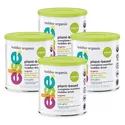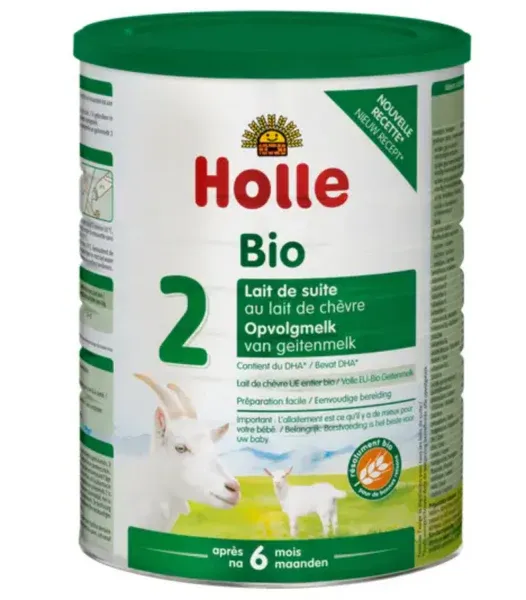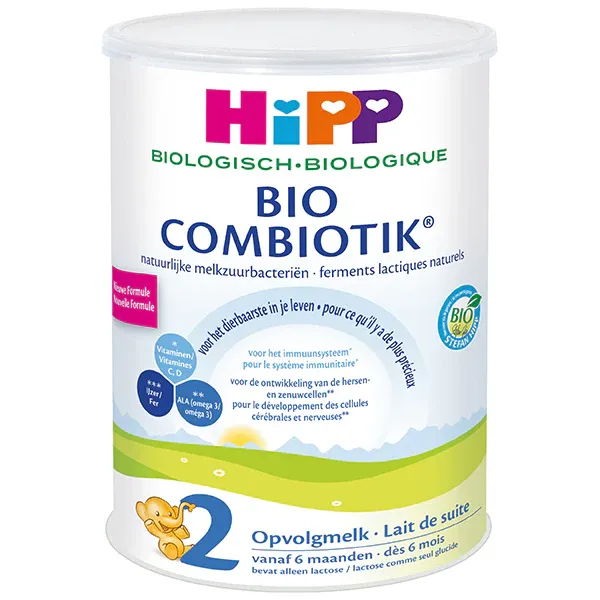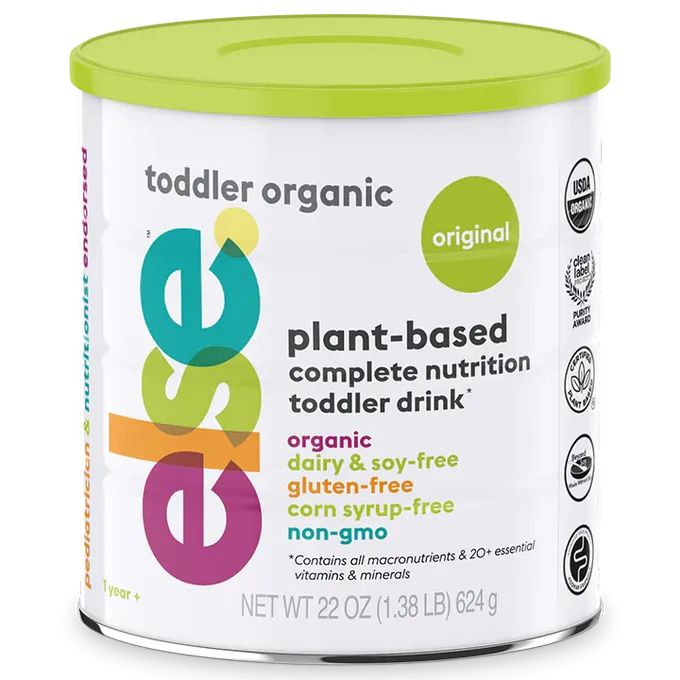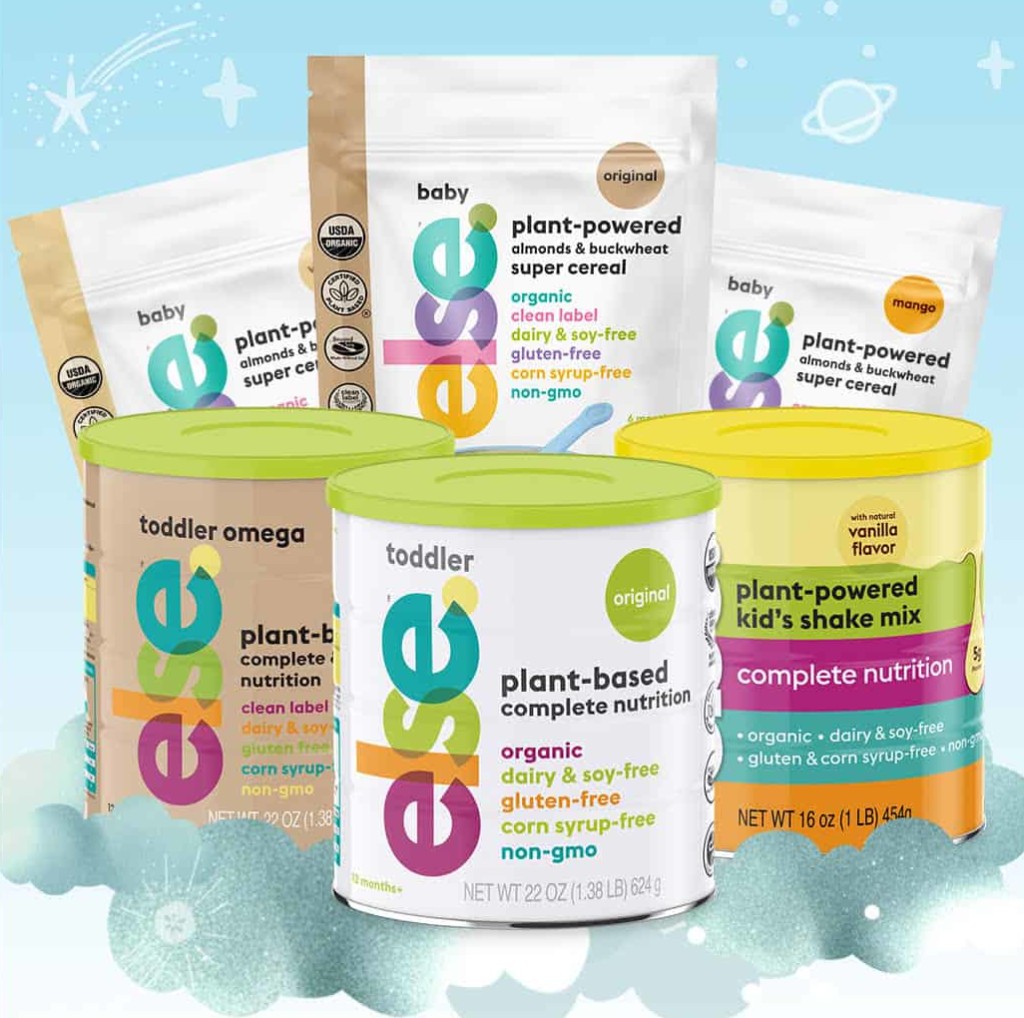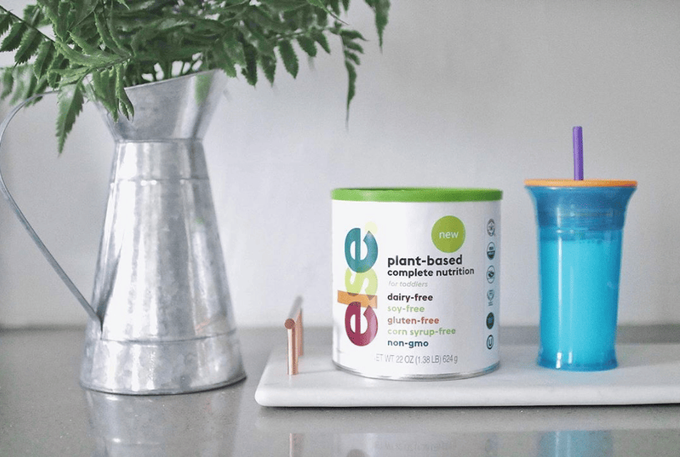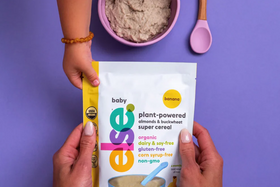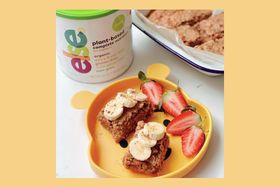Nourishing Beginnings: A Guide to Organic Baby Formula
Updated October 11, 2024

Is organic baby formula the healthiest choice for your infant? As a parent navigating the world of baby nutrition, you want the best for your child. This guide evaluates top organic baby formulas, differentiating between choices while focusing on the health and nutritional benefits they bring to your baby’s first months of life. Find the formula that meets your baby’s unique needs right here.
Top 3 Organic Formulas for Your Little One
As little ones embark on their first taste of life, providing them with the finest nourishment is a priority that resonates deeply with parents. Whether your baby has specific dietary needs or you’re simply looking for the purest ingredients, the organic baby formula market offers a spectrum of choices.
- Holle Goat Stage 2 (6-12 Months) Milk Formula is considered one of the best goat milk formulas available. It is suitable for babies aged 6-12 months.
- HiPP Dutch Stage 2 Combiotic Formula is highly recommended for continued development in infants aged 6-12 months. It is considered a good choice due to its beneficial properties.
- Best Organic formula for Plant-Based Nutrition, 12+ months: Else Organic Toddler Formula, Clean Label Certified, made with real, USDA organic whole food ingredients.
Each of these organic selections promises to provide your child with the nourishment they need, but how do they stack up in reality? Let’s explore these options further, examining their unique features and benefits.
» Learn how to supplement with formula at night
1. Best Goat Milk Formula: Holle Goat Stage 2 (6-12 Months) Milk Formula
A2 milk proteins
Organic skimmed milk with smaller fat globules
400g of formula powder per box
Pros
- Improved digestibility due to A2 milk proteins and smaller fat globules
- Creamy taste enjoyed by infants
- Suitable for babies with sensitivities to cow’s milk or lactose intolerance
Cons
- May be cost-prohibitive for some families
- Smaller package size (400g) compared to other formulas
The Holle Goat Stage 2 formula offers several benefits for parents of infants with sensitivities to cow’s milk or lactose intolerance:
It is rich in A2 milk proteins and smaller fat globules, which are easier to digest.
It aligns closely with the delicate digestive systems of babies aged 6 to 12 months.
The inclusion of medium-chain fatty acids amplifies the nutritional content. Overall, it is a strong contender in the goat milk formula category.
One cannot overlook the genuine satisfaction parents express when recounting their babies’ experiences with Holle Goat Stage 2. The creamy taste seems to be a hit among the little connoisseurs, and the minimal tummy issues and reduced reflux observed are a testament to its digestibility.
However, the premium nature of the product may make it less accessible for some budgets, and the 400g box size means that frequent restocking could be necessary. Despite this, the quality and benefits it offers make it a worthwhile consideration for those who can afford it.
2. Best for Continued Development: HiPP Dutch Stage 2 Combiotic Formula 6-12 Months
This product contains probiotics and prebiotics to support a healthy gut, while the increased iron levels are achieved through the addition of ferrous sulfate. The organic lactose-only content ensures compatibility with most dietary restrictions.
Pros
- Supports growth and development with added probiotics, prebiotics, and iron
- Gentle and easy to digest
- Good tolerance even in babies with previous formula sensitivities
Cons
- Stock issues can make it difficult to find
HiPP Dutch Stage 2 Combiotic Formula offers infants aged 6 to 12 months:
Probiotics and prebiotics to fortify the immune system
Increased level of iron to facilitate iron absorption
Lactose-only content that is nutritious and kind to tiny tummies
Parents who have ventured into the realm of HiPP Dutch Stage 2 often praise its gentle nature, noting a marked difference in babies who previously struggled with other formulas. Yet, they also voice a concern: the challenge of finding this formula due to occasional stock shortages.
This hiccup in availability can be disconcerting for those who rely on the consistent quality it provides. Nonetheless, for the nutrition and developmental support it offers, many deem it a worthwhile pursuit.
3. Best for Plant-Based Nutrition: Else Toddler Formula Organic
Plant-Based
Made with 80%+ real whole food ingredients, including almonds, buckwheat, and tapioca
Suitable for children aged 12-36 months
Pros
- FREE from: Dairy, soy, gluten, hormones, antibiotics, palm oil, and corn syrup.
- Quick and easy preparation
- Supports sustainable and Plant-Based-friendly feeding practices
Cons
- May not be suitable for all dietary preferences and requirements - as it contains almonds. Check with your Pediatrician with any questions.
Else Toddler Formula Organic is a trailblazer in the realm of plant-based nutrition, offering a wholesome alternative for parents who want to nourish their toddlers with organic, real whole food ingredients.
Crafted with almonds, buckwheat, and tapioca, this formula sidesteps dairy, soy, gluten, and it's Certified Clean Label, making it an ideal choice for those toddlers with sensitivities, or those seeking a plant-based option.
The convenience of its powdered form is matched by the rigorous standards of its clean processing method, ensuring that each scoop is as safe as it is nutritious.
Else’s commitment to transforming feeding practices with sustainable alternatives, such as organic soy lecithin and organic whey protein concentrate, resonates deeply with vegan and plant-based parents who celebrate the availability of a formula that aligns with their dietary principles. It earns a special place in the hearts of those it serves.
Selecting the Perfect Organic Formula
As we navigate the complex terrain of baby nutrition, selecting the perfect organic formula becomes a central theme. It’s about more than just finding a product; it’s about understanding the intricacies of nutritional content, ingredient quality, and your baby's specific dietary needs.
In the following sections, we’ll delve into these factors, shedding light on how to align your choice of formula with your baby’s individual growth journey and overall well-being.
» Discover the key signs that formula isn't suitable for your baby
Nutritional Considerations
The nutritional landscape of organic baby formulas is vast and varied, with each product offering a distinct blend of macronutrients, vitamins, and additional benefits. Some key components to look for in organic baby formulas include:
Lactose, a carbohydrate found in human milk, is frequently mimicked in formulas to cater to infants’ energy needs
Vitamins such as C and D, which are present in some formulas and bolster immune support and iron absorption
Plant-based DHA from sources like schizochytrium sp., which nurtures eye and brain development
These are just a few examples of the different nutrients and benefits that can be found in organic baby formulas. It’s important to carefully read the labels and choose a formula that meets your baby’s specific nutritional needs.
Notably, the digestive health improvements attributed to formulas like ByHeart and the healthier intestinal flora fostered by probiotics and prebiotics in HiPP Dutch Stage 1 Combiotic are additional benefits that cannot be overlooked.
While breastfeeding remains the gold standard for infant nutrition, clinical trials and health experts, including Pediatrician Robert Dracker, acknowledge the positive impacts of well-designed formulas, underscoring their role in a balanced nutritional approach for babies.
In this context, essential nutrients such as folic acid, sodium chloride, zinc sulfate, and synthetic nutrients like mixed tocopherol concentrate (a form of vitamin E) and thiamine hydrochloride are carefully considered to complement the transition to solid foods. Beta carotene and other vitamins round out the formula to create a nutritional profile that supports every stage of a baby’s development.
Understanding Ingredient Quality
Quality ingredients are the cornerstone of certified organic baby formulas. Each component in an organic formula passes through a rigorous certification process, ensuring non-GMO ingredients, adherence to a national list of allowed and prohibited substances, and certified organic components. For instance, Holle’s Swiss-based formula not only meets USDA organic standards but also boasts the Demeter certification, representing exceptional organic farming practices.
The stringent European organic standards, often more rigorous than those in the United States, set a high bar for products like the German-made organic infant formula intended for the Dutch market. This rigorous approach to quality is mirrored in Baby’s Only Organic Premium Infant Formula, which prides itself on being affordable and free from corn syrup, palm oil, organic coconut oil, and dyes, in addition to its USDA organic certification.
The natural ingredients in organic baby formulas contribute to significant benefits, such as reduced exposure to harmful chemicals like pesticides, which have been linked to cognitive and behavioral development issues in children. Even though the Environmental Protection Agency monitors the safety of pesticides in children’s foods, organic formulas typically contain lower levels of these residues, further reinforcing the importance of ingredient quality in organic baby products.
Matching Formula to Baby's Needs
When it comes to finding the right baby formula, the developmental stage and specific health considerations of your baby take precedence. For instance, formulas like Holle Goat Stage 2 might not be suitable for babies with lactose intolerance or cow’s milk protein allergies, highlighting the necessity of choosing a formula that aligns with your baby’s digestive health needs.
Selecting a formula that complements the baby’s developmental stage is vital to ensure they receive the appropriate nutrients for optimal growth. This tailored approach to nutrition is essential, as each stage of infancy demands different dietary components to support development. Whether it’s the initial months requiring a gentle formula like HiPP Dutch Stage 1 or the latter half of the first year when more complex nutrition such as HiPP Dutch Stage 2 is necessary, matching the formula to the baby’s stage of development is key.
Ultimately, the decision to choose a particular organic baby formula should be a thoughtful one, influenced by the baby’s health, the parents’ dietary preferences, and the advice of healthcare professionals. By balancing these factors with the detailed information provided about each formula, parents can make an informed choice that resonates with their baby’s needs and their own values.
Summary
Whether you’re drawn to the plant-based virtues of Else Toddler Formula for babies 12+ months or the newborn-specific nutrition of HiPP Dutch Stage 1, there’s a formula that’s just right for your baby.
This guide has endeavored to shed light on the critical elements that define organic baby formulas, from the essential nutrients and quality ingredients to the careful matching of the formula to your baby’s unique needs. Armed with this knowledge, you are now equipped to make a decision that will nourish your baby’s growth and reflect the values you hold dear. May your little one thrive on the pure, nurturing sustenance that these organic options so lovingly provide.
This article was reviewed by Kayla Bridges, DCN, MS, RD-AP. Kayla Bridges is Director of Medical & Scientific Affairs at Else Nutrition, North America.
Frequently Asked Questions
Are organic baby formula better?
There is no significant nutritional difference between organic baby formula and non-organic formulas. It ultimately depends on parental preference.
What makes an infant formula "organic"?
An infant formula is considered "organic" when it contains at least 95% organic ingredients, follows non-GMO practices, and uses certified organic ingredients, meeting stringent requirements set by the USDA to potentially reduce babies' exposure to pesticides and harmful chemicals.
Are organic formulas safe and regulated like other baby formulas?
Yes, organic formulas in the U.S. are regulated by the FDA and must meet the same strict nutritional requirements as other baby formulas, ensuring their safety and nutritional adequacy.
Can organic baby formulas help with allergies?
Yes, certain organic formulas can help with allergies by being free from common allergens, making them suitable for babies with specific dietary restrictions and allergies. Always check the label or with the manufacturer to ensure the formula meets your baby's needs.
Is there a vegan option available for baby formulas?
Yes, there are vegan options available for baby formulas, such as Else Toddler Formula Organic made with almonds, buckwheat, and tapioca, providing a plant-based, dairy-free, and soy-free alternative.
The content and advice provided in this article is for informational purposes only and is not a substitute for medical diagnosis, treatment, advice for specific medical conditions. Always consult a pediatrician to understand the individual needs of your child. The article expresses the views of the brand editor.




